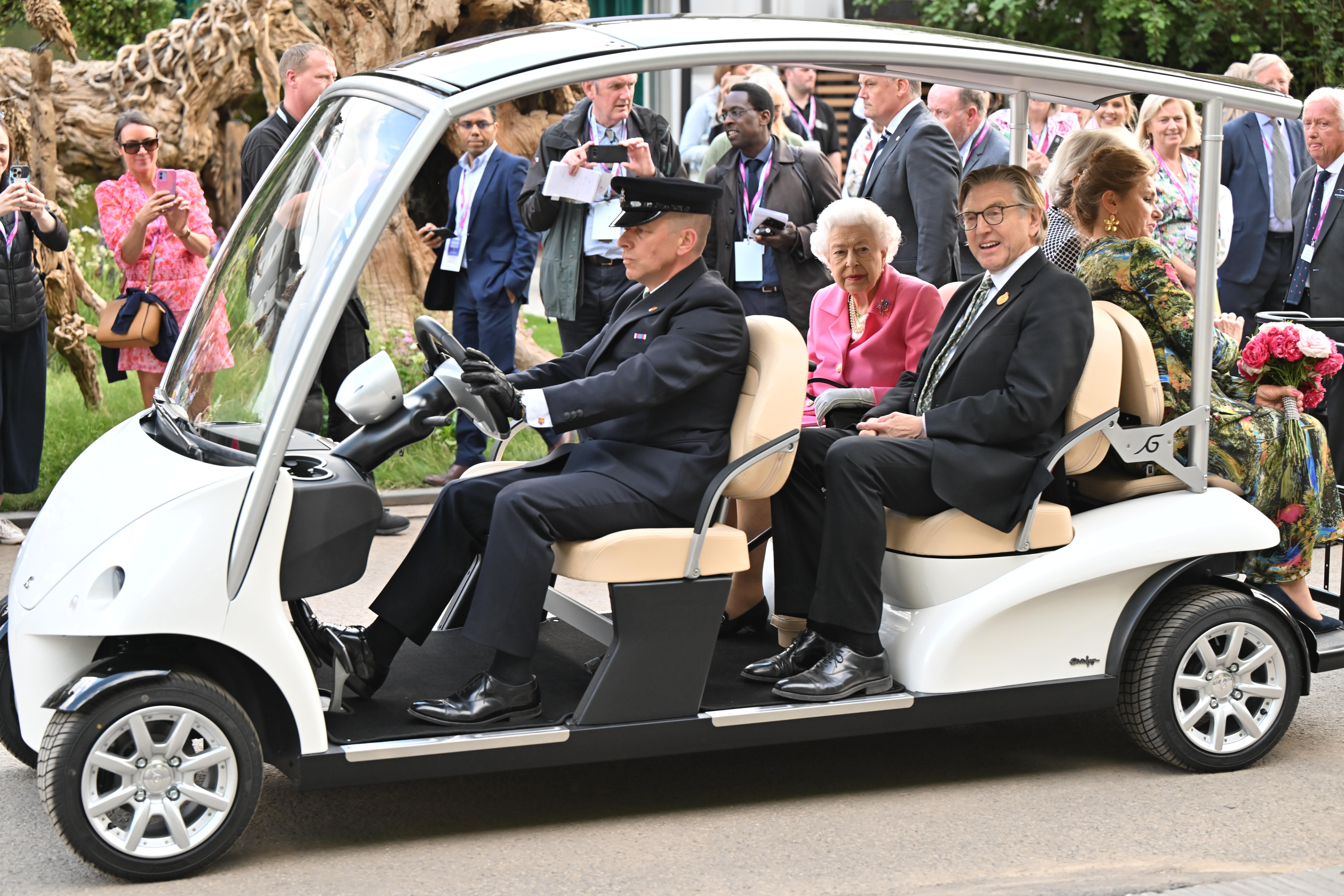The Independent's journalism is supported by our readers. When you purchase through links on our site, we may earn commission.
Forget the ‘Queenmobile’ – why doesn’t Her Majesty just use a wheelchair?
The Queen is doing a disservice to disabled people by not choosing a wheelchair or mobility scooter


They’re calling it the Queenmobile – a staggeringly expensive piece of kit (think two brand new BMWs) – splashed all over the newspapers because it has been ferrying the mobility-impaired monarch around the Chelsea Flower Show.
The driving duties are performed by a chauffeur in the obligatory peaked cap. Of course they are.
Usually this sort of story has about as much interest to me as the identity of Khloe Kardashian’s latest squeeze. But on this occasion, the pictures got lodged in my brain and started nagging until they produced a question: would someone tell me what’s wrong with a wheelchair? Or a mobility scooter?
Normally, those of us with disabilities are loathe to pass comment on the choices made by others when it comes to getting around. With good reason.
We feel we get enough judgement from the able-bodied. To actually prove to the government that we’re disabled in the first place requires clearing more fences than the winner of the Cheltenham Gold Cup. Even if we complete the course, that’s not the end of it. I count myself fortunate if I manage to finish one out of every two trips out of the house without someone sticking their oar in.
An example: I was once happily pushing up a hill when a neighbour expressed her puzzlement that I didn’t get a scooter. “Why on earth don’t you get one of those motorised things,” is what she actually said, in a loud and braying tone that the whole street could hear. The answer is because I don’t bloody want or need one. But I’m not going to judge those that do. So keep your damn comments to yourself.
It is because of this that I feel a little guilty about raising the issue with the Queen. I don’t do it lightly. But the Queen is, after all, a very public person. The head of state. Someone who sets an example that people take note of and follow. So I think it’s fair to ask why the chauffeur-driven golf buggy in favour of scooter or a chair? And to wonder whether the choice was made because it was seen as the most “dignified” option?
And something that wouldn’t make her look – dare I say it – disabled. Because we can’t have that. The fact that the Queen didn’t use a more normal mobility aid is disappointing. Had she done so, it would have sent a powerful message. It would have said that there is nothing wrong with these aids. They’re fine. Normal, everyday items. Nothing undignified about them.
That is a message we badly need someone to send because it is an unfortunate fact that many people see mobility aids, or other equipment used by people with disabilities, and immediately look down on their users. They infantilise us. They talk not to us but to the people with us.
Nearly half of the respondents to a recent UK survey (45 per cent) admitted to not feeling comfortable saying the word “disabled” or “disability” in everyday conversations, “creating a feeling of taboo about a condition that affects 14 million people in the UK”. A similar number tried to conceal their challenges from work colleagues over fears of stalling progression or landing a promotion, or being judged and made to feel like an outsider. Forty per cent felt that their colleagues valued them less after they realised they had a disability. These results speak volumes.
To keep up to speed with all the latest opinions and comment, sign up to our free weekly Voices Dispatches newsletter by clicking here
Disabled representation in the media is nearly non-existent. I get heartily sick of TV executives standing up and saying how the industry must do better. They seem to think that picking from a small pool of paralympians – because of course they’re superhuman – as tokens does the job. If they even go that far.
When the monarch uses a specially built super-buggy rather than a more normal conveyance, it shows just how far we have to go. We badly need allies. But God only knows where they’re coming from.
Hang on, though, perhaps God does know. Recently Pope Francis, who has also had mobility issues, was pictured using a wheelchair. A fairly normal looking one too. Pope Francis is, like the Queen, also a head of state (the Vatican), and the head of a church, one with more than 1 billion followers. He didn’t seem to feel using a mobility aid was undignified. Because it’s not.
Join our commenting forum
Join thought-provoking conversations, follow other Independent readers and see their replies
Comments
Bookmark popover
Removed from bookmarks